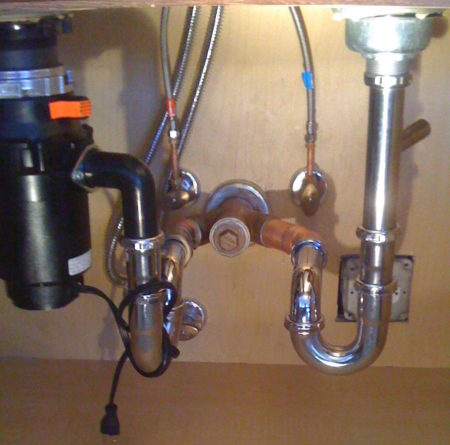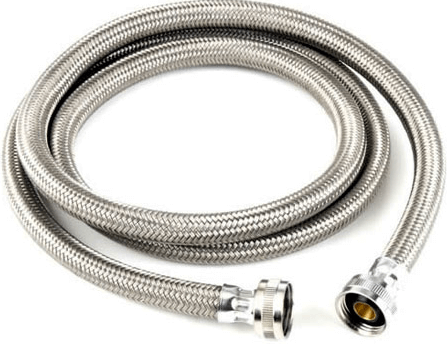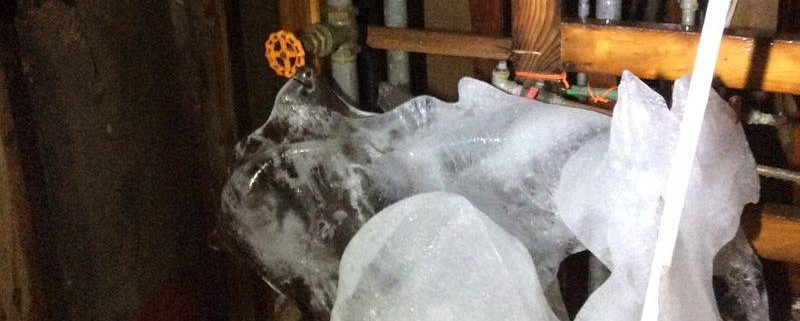Winter Plumbing Problems
Winter plumbing problems are on a steep rise as winter is here. We hope you prepared your plumbing for the freezing weather.
Home & businesses that aren’t properly insulated pose a risk to the plumbing fixtures inside, and if the pipes are exposed to freezing cold temperatures, they freeze up fast. Frozen plumbing is one of the worst plumbing problems that can happen in your home especially in the dead of winter.
Frozen busted pipes will result in costly water damages, which is why it’s critically important to properly winterize your plumbing before the first freeze hits.
Do You Have Frozen Pipes? Call (847) 624-3872
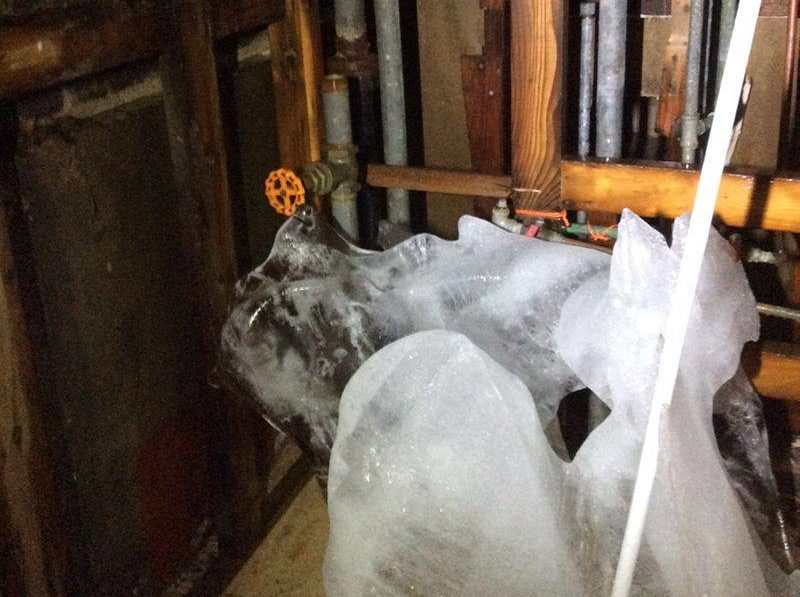
Keep An Eye Out For Ice
Avoiding a frozen plumbing catastrophe means not ignoring the warning signs of a frozen pipe and most importantly knowing how to prevent them.
If your pipes are frosty, it may be inviting to try and defrost the plumbing yourself, but correcting the problem should be the job of a licensed plumber. Your plumbing is tricky, and it can be extremely dangerous without the right training, tools and certification.
The quicker you treat frozen plumbing, the better, as the built-up pressure inside can burst your plumbing over an extended amount of time. To dodge a plumbing disaster, here are a few cautioning signs to watch for.
• Ice on Pipes
See if you can locate any of the plumbing inside your home or business. If you see any ice accumulating outside the pipes, that can be a sign that the plumbing is nice and frosty.
• No Flowing Water
Ice pipes freeze all running water from flowing from your faucet. If there is no H2o flowing out of the faucet, it means it’s frozen.
• Stinky Odor
If you smell something funky, perhaps something funky stinky, the issue could be a frozen pipe. Pipes that partially or completely clogged, give any foul odors no place to go but back up.
• Creepy Noises
If your pipes are frozen, that means there is air that can’t escape the sewer line, and the result is a air under water sound when you flush the commode or use the basin. Screeching, banging, and clanking sounds are also noises to listen for, as they can specify a damaged pipeline.
Do You Have Frozen Pipes? Call (847) 624-3872
Wintertime Plumbing Groundwork
Besides knowing when it’s time to contact a professional plumber, the best way to protect your plumbing is with proper preparation.
Winter, and the frigid temperatures that come with it are inevitable, but that doesn’t mean you or your plumbing have to suffer this winter season. To spare yourself the costly repairs of a few busted pipes, here’s what you can do to prevent your plumbing from freezing.
• Insulate Your Pipelines
Insulation is the best type of protection between your plumbing and the freezing temperatures, which is why it’s important to add a layer of insulation to your plumbing if you haven’t already.
Using some foam pipe insulation, which can be found at any local hardware store, make sure you seal any gaps.
• Insulate Your Home
To protect your plumbing, it’s important that your house is properly insulated as well, which means sealing any air leaks. Check the insulation inside your home, and replace any damaged insulation. Attics and basements should be checked for any air leaks from doors, windows, and vents.
• Let Your Faucets Run a Little
If it’s below freezing outside, let your faucets run a low and steady drip. Letting your faucets drip eliminates pressure that can build up between the faucet and an ice blockage.
A constant small running stream of water inside your pipes can not only prevent some freezing, but a burst pipe in case the water does freeze.
Do You Have Frozen Pipes? Call (847) 624-3872
• Don’t Forget Your Hose Bibs
It’s easy to do, but don’t forget the plumbing outside your house. Garden hoses should put away, and the hose bibs, drained and properly insulated.
Hose bibs that are left exposed to the frigid temperatures, can cause some serious damage to the valves leading up to them.
• Open Pantry and Cabinet Doors
Keeping your home well-heated helps to prevent frozen plumbing, but proper heating requires proper circulation. Leaving all the pantry, cabinet, and otherwise closed doors open allows the heat to fully circulate throughout
your house.
Don’t Wait Until Your Pipes Burst
Malfunctioning plumbing is a pain, and a busted frozen pipe can lead to costly repairs and devastating flood damage. That’s why it’s important to winterize your plumbing before a plumbing catastrophe can happen.
Your warmth and comfort should never be at stake when it comes to your plumbing. Luckily with some preparation, you can stay warm and enjoy your plumbing without the damages. Call us today, and let them answer any winter plumbing concern for you.
Call Fox Valley Plumbing & Backflow Today for more details on your winter plumbing…
Do You Have Frozen Pipes? Call (847) 624-3872

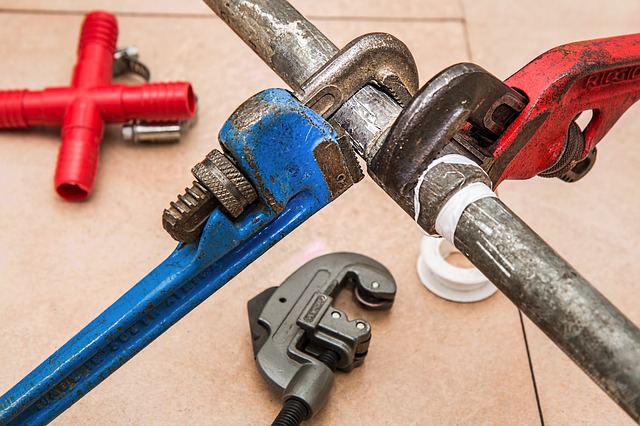
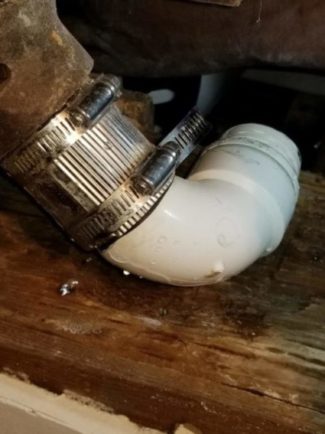 Temperature Changes:
Temperature Changes: